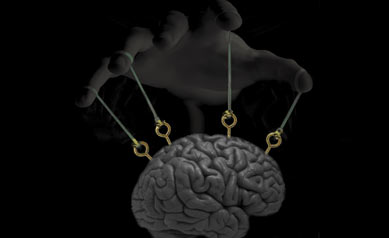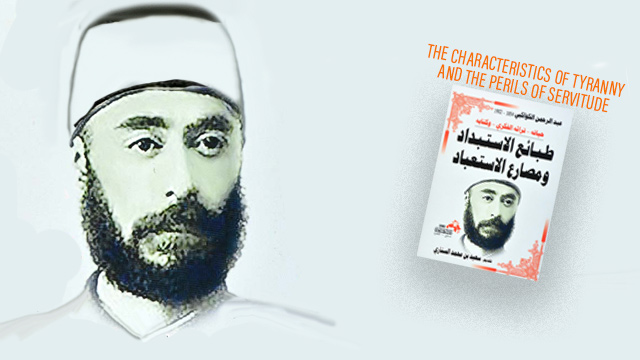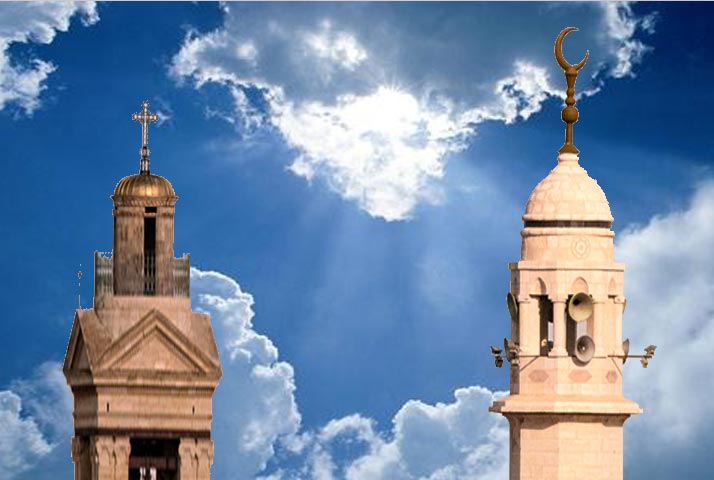Rebirth of Eritrea: Beyond the Oppressed Mind

On 24 May Eritrea turned 25–a quarter of a century–a Silver Jubilee! I salute and honour all those patriots (from every walk of life) who paid dearly for the dignity of having our own nation, this in and of itself is a cause for celebration. Equally, this is a milestone and opportunity where we pause and reflect on the journey so far. Sadly, though, on its Silver Jubilee the assessment is dire for Eritrea. Not only did it fall short of the aspirations of its people, it upended their hopes and dreams. The legacy of the revered Eritrean martyrs is dishonoured, they must have rolled in their graves on the Jubilee of a nation they created! The once hopeful nation degenerated so much so that it has adopted unsavory names such as “The North Korea of Africa”, “World’s Fast Emptying Nation”, “A Country Ruled by Fear” and worse a nation which is one of the worst offenders of human rights and possibly committing crimes against humanity (against its own citizens). In the last 25 years and counting…Eritrea turned a belligerent country and has pitted its people to abject poverty and social fragmentation. Its youth pay exorbitant amount of money and risk their lives to run away as fast and as far away from it. Today it has become a country whose citizens have lost hope. This is a damning indictment for a nation once described on its promise of becoming “the brighter star of Africa”. No wonder then Eritreans go through this ambivalent feeling every 24 May and more so on its Jubilee. We and the rest of the world are dumbfounded with the reversal of our fortunes and sorry state of affairs.
For a long time now, my colleagues and I (am sure it is the same with many of you too), have been puzzled by one BIG question, why are we Eritreans (as people) unable to adequately and decisively respond to the indignity and decline we face as a nation? We wonder what has happened to the indomitable spirit of ‘ዘይተጻዓድነት’ we pride in? In the face of such injustice and the undoing of the gains and aspirations of our national struggle, by and large we maintain banality of sorts which raises more questions in itself. In 2004, while at university a good friend of mine from India had had enough of our lamentations and whining about what was unraveling in Eritrea and asked, “what is the problem in your country?”. Our response was obvious and readily available, “it is just one man making our lives miserable”. Ravi (Dr. Ravi) is a down-to-earth by nature and a computational mathematician by profession…he asked what the population size of Eritrea was. What? We were not ready for that question; I guess that is arguably of of the toughest question for an Eritrean? How many are we, even now? It is anybody’s guess, so we gave him a random number–a range to be ‘exact’–4-5 million (I don’t know what those figures (range) means to an Indian, though…). Anyhow, true to form, he dismissed us matter-of-factly, “you guys are idiots [his favourite curse word), why don’t you then do away with him, if it is just one person messing your lives!”. Hmmm…..it got me to ponder and rethink the definition of the problem itself before I could even search for an explanation (solution). We tried to study different experiences and experiments around the world, all in the quest to understand ourselves but we couldn’t quite crack it. Meanwhile, a lot have been written on our harrowing predicaments and as to why we are in this state. Some argue we relinquished our responsibility and remained passive (blind trust), and yet we are all active in some way or another. Others suggested we are ‘hypnotised’ which I think is not adequate explanation, because hypnosis is a trance-like temporary flight of the mind and is micro-managed by a medium, and more, what could be the focus that absorbs our consciousness to the extent we are unable to respond to knocks and blows? Ours feels more like a coma than anything else. In any case, both hypnosis and coma relate to a person’s mind or a nation’s psyche, perhaps an inkling to where we should be looking for an answer.
Recently, I have been on a trance of my own to reflect and seek an answer to that big question. The clues were helpful actually, and as I started to do some reading I came face to face with the complex world of our mind and thought processes. As I went along, I needed an off ramp to our case and found Saleh Younis’ 2013 signpost on ‘Our New Culture of victimhood and Voyeurism’ (published in awate.com). In it Younis writes, ‘One of the worst things the Isaias Afwerki regime has committed against Eritreans is to condition them into emphasizing the status of a victim’. But what is this ‘condition’ of ‘victimhood’? What makes it ‘worse’? What are the mechanics of it? Now, volumes of books could be and have in fact been written on this and so it is difficult to address them in depth in a single commentary article. Also note that the article does not analyze the individual, group, or national experiences, examples are selected to reveal some patterns and indicators of an oppressed mind or victim mentality. So take it from me, this article is incomplete and I don’t pretend to be an expert in psychoanalysis (hopefully the many experts in human psychology amongst us will help us decipher the complex codes that shape our thinking faculties and expand the debate….Haye belu/a!) Rather, this should be viewed as an attempt to add to or provoke a debate on how we can confront our painful individual, group, and national experiences and forge a new future- a better one.
In order to guide the discussion, it maybe better to start by first addressing the key concepts and how they become salient on individuals and collectives. The root cause of an oppressed mind is the experience of oppression which is defined by the Oxford dictionary as ‘prolonged cruel or unjust treatment or exercise of authority.’ It is synonymous with enslavement, abuse, persecution, subjugation, subjection, maltreatment, repression, cruelty, suppression, despotism, tyranny, exploitation, misery, brutality, injustice, suffering, pain, anguish, and more. These are not abstract terms and concepts. They are dozens of lived experiences that result in individual and collective loss, pain, and humiliation. They are meted out in different ways and at different times by the perpetrators (individuals, groups, authorities, and even circumstances). The oppressed mind is also closely linked to ‘victim mentality’ which refers to ‘elements in victims’ psychology that emerges as a result of the harmful [experience]’ (Bar-Tal et al 2009, 231). At least for the purposes of this article the three terms (‘oppressed mind’, victim-mentality’ or ‘victimhood’ ) are synonymous and are used alternatively. The focus here is not the level and scale of the negative experiences or the perpetrators but the lasting impact of oppression on its victims. The immediate pain and loss sustained as a result of a harmful action by perpetrators should not be confused with the state of mind that emerges as a consequence of those negative experiences. These experiences can render an individual neurotic and psychotic. According to Bar-Tal and colleagues, indicators of a person suffering from this mentality include helplessness, self-pity, self-inefficiency, low self-esteem, hopelessness, guilt, loss of trust, loss of meaning, an absent sense of accountability and responsibility, hatred, fear, rancour, a tendency to blame external factors, and lack of self-control.
And just as individuals, collectives (eg. a nation) can suffer from victimhood which ‘may result from events that harm the members of the collective because of their membership, even if not all the group members experience the harm directly…groups can suffer from collective victimisation which…is not based only on an objective experience but also on the social construction of it’ (Bar-Tal et al 2009, 234). It means the collective sense of victimhood maybe be as a result of either actual or perceived harm inflicted on a whole group or members of a group. Obviously, a collective victim mentality or an oppressed national psyche has far-reaching ramifications than an individual (we can seek and find a solution around us). But who can help an oppressed nation?
The collective believes (or perceives) enemies (including perpetrators of the initial harm) are out there to harm it again which results in ‘siege mentality’ (permanent state of collective fear). At all cost the ‘enemies’ (all types of opponents or rivals) are labelled and blackmailed and seen with intense hostility (delegitimisation). Such a nation also often constructs its own reality based on biased or skewed world outlook. Through shared beliefs, attitudes, and emotions the victimhood becomes part of the narrative of the collective. ‘Finally, the collective sense of victimhood becomes a prism through which the society [group] processes information and makes decisions (Bar-Tal et al 2009, 236). This means accepted universal norms are deconstructed to allow the collective to breach them when needed. And this allows it to rationalise and defend immoral acts not only against actual and perceived opponents but also against group members (citizens). Usually it employs violence as a response to any actual and perceived harm against it. Egocentrism and lack of empathy characterise such a group or a nation where their own wrong doing is deliberately suppressed. Instead, regardless of their actions, their victimhood status allows them to claim moral entitlement and demand empathy from others and not condemnation. The consequence is that the collective can do more harm than its initial oppressors, often with impunity. Furthermore, there is lack of accountability and responsibility for its actions and the actions of its members (when they serve the interests of the former). In order to maintain the victim status, the victim processes information selectively and in a biased manner which distorts reality. Through such mechanisms the collective reconstructs its identity and maintains (services) the status quo. Eventually victimhood pits a victim nation (collective) into vicious cycle of violence. Often the oppressed state of mind or state of affairs is emotionally charged and there are those agent provocateurs (mostly ruling elites) who find it ‘conducive’ space from which to operate to achieve their own political and economic interests. They may or not be victims of victimhood themselves but certainly they take advantage of the necessary conditions that exist within a collective. They turn it into uncomfortable ‘comfort zone’ for everyone in their group. They use it as their only weapon (justification) for personal and political agenda. In some cases, the right of admission is even reserved as if it is a privileged space. This pandemic has plagued and continues to affect many nations, societies, and social groups.
In one of his enduring and enlightening quotes, the acclaimed South African anti-apartheid activist and leader of the Black Consciousness Movement, Steve Biko once stated “the most potent weapon in the hands of the oppressor is the mind of the oppressed”. He uttered these abiding words in the face of the humiliation and brutality the black South African majority suffered under white minority rule (apartheid). Perhaps he was wondering…. how could it be possible that a minority “strangers” could subjugate the majority “natives” in their own turf for far too long? And probably bewildered as to why the black majority were unable to summon their warrior spirit and shake off the yoke and break the shackles? In his time, non-violent struggle seemed hopeless, armed resistance proved ineffective, and political discord and fragmentation characterised the liberation movement at large. The oppressed masses seemed to have given up and resigned to their fate. He himself might have thought he had known what was plaguing his nation, and the liberation movement…it was bad leadership, the mighty arms at the disposal of the enemy, the apathy of the world, infiltrators and the list probably went on…. He was utterly confused. He must then have gone on a soul searching journey beyond the self-evident experience of oppression. And as Socrates once said ‘confusion is the beginning of wisdom [clarity]” and so finally it dawned on Biko that the battle ground was the oppressed mind and set out to ‘instill a sense of dignity’ and ‘self-empowerment’ among his people. This self-transformation was more evident in none other than Nelson Mandela himself who started as a firebrand, went to prison for life and came out not only transformed but also achieved both the morale and political high ground (even arguably liberated the oppressors’ mind). This mentality has a huge impact on the will and the capacity of SA to look forward and chart a new beginning which enabled the nation to redress past injustices, confront present challenges, and plan for a much better future.
Similarly, in his “The Burden of Freedom” Dr. Myles Munroe (2004) observed that the oppressed mind can become a serious impediment for individuals, communities, and nations. According to to him, during slavery in the US and other countries in the Caribbean, the relationship between the ‘slave’ and the ‘master’ was that the former had no ‘responsibility’, he/she lived and worked at the behest of the latter. Such was the humiliation and indignity of slavery. In this exploitative relations, the ‘master’ had the responsibility to plan for his life and his wealth (including that of his slaves). Slavery deprived its victims not only their freedom but also their mental capacity (agency). The tragedy highlighted in his observation is that the curse of the oppressed mind was evident among the slaves even after they were freed- freedom turned out to be a burden. As a result, many went back to work for their former ‘masters’ under conditions in many ways worse than when they had been slaves. Many African-Americans today face a myriad of social challenges and the ‘victim mentality’ plays its role in holding them back from seizing the opportunities they have and the freedom they gained. It is true that there are still structural challenges that discriminate, and marginalise blacks but newly arrived immigrants face the same hurdles and yet they generally do well. By taming the wrath within us comedians help us to look at our entrenched attitudes as the popular American actor and standup comedian Chris Rock reveals the very oppressed mind which is prevalent among his black compatriots. In between the barrage of expletives, Rock asks ‘who is more racist, black people or whites people?’ and then answers the question himself, “black people. You know why? we hate black people too…everything white people don’t like about black people, black people really don’t like about black people…there is civil war going on with black people…and it is two sides…black people and niggaz…niggaz [the oppressed mind] have got to go….’ laughter follows…but the message is clear.
The reality is also evident in many formerly oppressed societies in Africa. Liberation movements mobilised their peoples against colonial rule and once independence was achieved, they were unable to use their freedom to plan ahead and shape their people’s destiny for the better. Instead, they chose to dwell on their past grievances and wasted resources and opportunities to blame the already gone adversaries- forming in the process an oppressed ‘national psyche’ (collective mindset). The post-colonial African elite maintained the colonial past as a facade for their tragic failures and boundless greed. In essence, they did not ‘free’ their people, instead they conditioned them to victimhood (oppressed mind). Through the inculcation of docility coupled with coercion, they maintain a degree of regime stability, and in most instances the ruling ‘party’ became stronger than the state instead of the reverse. Often, despite an early post-liberation honeymoon period in which energies are directed towards reconstruction and various social reforms, the movements quickly degenerate to retrenchments, stasis, corruption, and crisis. When the regimes they built began to unravel, they tend to readily and conveniently find and use ‘external forces’ to blame and through it they dispense repressive measures against anyone who challenges their rule. In this way, they wreaked havoc across the continent by turning the newly independent countries into their personal chiefdoms where they ruled with an iron fist over an already exploited and dispossessed masses and appropriated the meagre national wealth. This has always become detrimental to the overall development of these nations and the evidence is still there for all to see. The good news is that Africa is now beginning to emerge out of this tortured mentality with democratisation gaining footholds in many corners from Senegal to Tanzania, from South Africa to Tunisia and the awakening of the entrepreneurial ability of the younger generation who are taking it upon themselves to forge a new and better chapter for themselves, their households, and their nations. As a result we see signs of a more assertive and confident generation leading the way in many countries…Mash-alah! Yet, there are still many dark corners where the situation is bleaker.
NB: This is the first of a two part article, the second portion will be published next week.



Awate Forum